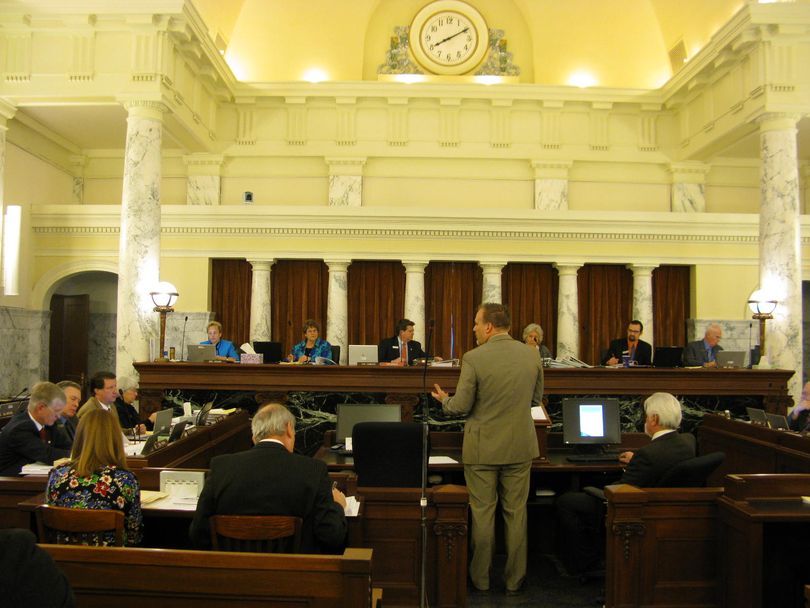Wait list for Voc Rehab job program for disabled swells to 400, wait time is year and a half

Idaho’s Division of Vocational Rehabilitation now has 400 people on a waiting list for extended employment services for the disabled, with the average wait time about a year and a half. These are people with intellectual or developmental disabilities. “They can get work and work in the community, but they just need some supports so they can keep their job,” said Don Alveshere, division administrator. In the past year, 615 people on the program had jobs in the community, a 12 percent increase from the previous year, and 444 worked at sheltered workshops, down slightly from 480 the previous year.
Alveshere, who presented his division’s budget request to JFAC this morning, didn’t dwell on the agency’s request for a $170,000 boost to the100 percent state-funded program next year, as Gov. Butch Otter didn’t recommend funding for the request. It would have allowed the program to serve another 50 to 75 people now on the waiting list, plus provided the first rate increase in four years to providers in the program. “This is a long-term commitment to these folks,” Alveshere explained. The extended employment services, depending on the level of disability, may be needed for life.
The program provides up to 10 hours a week of services to participants. “Only when we get more funding or some people pass away or leave the system can we … get new people,” Alveshere said.
Asked about the size of the waiting list, Alveshere said it includes some people who previously qualified for employment services under Medicaid, but lost those through recent Medicaid budget cuts. “These are people who, when they’re not receiving these employment services, are almost always receiving some other form of Health & Welfare related services,” Alveshere said, such as adult day care. “So there is a cost to the state by them not being a part of the program.”
Sen. Shawn Keough, R-Sandpoint, JFAC co-chair, said, "I know that it continues to be a topic of discussion. I think that we'll end up looking at it as we start to work on the numerous budgets in Medicaid, and I know that we'll be interested in hearing from the germane committees what their recommendations are."
JFAC members questioned why Voc Rehab returned $1.6 million of its federal grant funds in 2012, which go to other programs in the division besides extended employment services. The answer: It didn't have enough state or local funds to match that portion of its $15.4 million grant.
Otter also didn't recommend a request from the division for a $236,000 boost in state funding for its vocational rehabilitation services, including increasing outreach to businesses and transitioning clients from high school. That would have redirected funds from the former renal disease program, which has been eliminated, and allowed the state to leverage another $333,333 in federal grant funds for those services. The governor did recommend funding for a $16,500 request for additional interpreting services for the deaf and hard of hearing.
